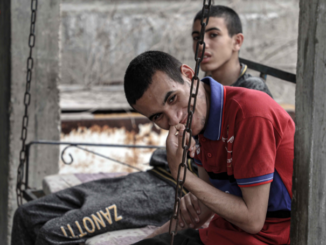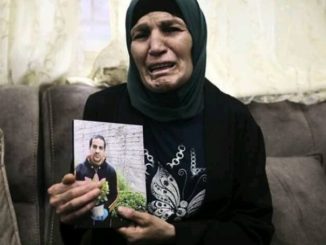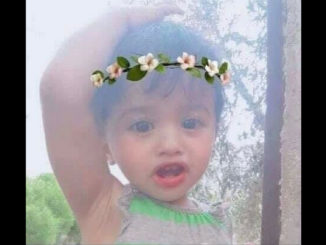
By Sam Bahour
(Wake Up and Reclaim Your Humanity: Essays on The Tragedy of Israel-Palestine. Richard Forer. Mindstir Media, 2020)
Bookshelves are overflowing with books on Palestine and Israel. One might imagine that there are no new angles to write about. However, this man-made historic tragedy is not only historic but continues to this day, thus, books are not going to stop being written anytime soon. This is a godsend, as this book’s author will confirm, for it was his reading of a few books from the other side that was the start of his wake-up call of a lifetime.
During the past few years, author Richard Forer is the second person who has come my way who is Jewish American, a former member or employee of the American Israel Public Affairs Committee (AIPAC) and educated themselves on the Palestine and Israel that their upbringing consciously hid from them.
Both also happen to write and are in a hurry to share with the world their learning journey, not to mention to speak out in the boldest way possible to make the case that they, as Jews, will not allow continuing Israeli war crimes to be done in their names. These two friends of mine are not alone. During these dark days, they provide light at the end of the tunnel, for when the Jewish community around the world wakes up I can see reality on the ground finally changing for the better.
When Richard reached out to ask if I would be willing to read his manuscript and consider writing an endorsement for his new book, I did not hesitate. Since being in touch online with Richard since 2013, I was aware of his profile and his previous book, “Breakthrough: Transforming Fear Into Compassion – A New Perspective on the Israel-Palestine Conflict”. I viewed him as someone thoughtful. Equally exciting to me was my constant desire to understand the journey that members of the Jewish community take to adjust the colossal disservice their community and educational institutions instill in them, the systematic dehumanization of Palestinians.
My endorsement of the book reflects my immediate reaction. It read:
“Wow. Wow. Wow. This is powerful. A brave and bold eleventh-hour clarion call for the world to wake up before it is too late. For those who are blindly loving Israel to death, this meticulously documented journey of enlightenment is meant to open minds and hearts. Invoking words from the horses’ mouths and recounting his visits to the region, the most feebleminded will be shocked; older Palestinian readers will relive open wounds from the past and present; the younger ones will have a new appreciation for how much we have endured. This book rings the bell of our universal humanity if only we are willing to hear it. A word of advice before you start reading, you will not want to put this down.”
Author Richard Forer grew up in the 1950s and 1960s in Trenton, NJ, where he attended reform synagogue. His identical twin brother has been a prominent member of an Orthodox Hasidic sect since the early 1970s. Another brother is a former president of one of the largest Reform Synagogues on the East Coast. Other Orthodox members of his family live in Jewish settlements in the West Bank. Forer is a past member of the American Israel Public Affairs Committee (AIPAC). In 1996, he was certified as a practitioner of the Meir Schneider Self-Healing Method, a unique system of touch, kinesthetic awareness, and mental imagery developed by an Israeli.
The first lines of the book’s preface caught my attention and had me reading through it in one sitting. Richard writes,
“Have you ever noticed how right most of us think we are even when we are wrong? I never thought this phenomenon applied to me until one day in 2006 when what I had taken for the truth of Israel-Palestine was exposed as fiction and what I had taken for fiction exposed as truth. Over many years I had maneuvered myself into this position by rejecting evidence that didn’t conform to my worldview and clinging to evidence that did. Although I didn’t know it, personal prejudice was the instrument that drove my judgments. I had believed only what I wanted to believe.”
With short, razor-focused chapters that are well-researched and extensively footnoted (766 footnotes to be exact), Richard chips away at his journey of being re-educated as an adult on Palestine-Israel. The book intertwines the author’s personal story, with news stories of the time, along with a dose of the history of the issues being discussed, all to shed the light that showed him the truth. This is all done without judging the reader because, not being judged by a critical friend, was the exact way he found his way to the truth.
The book comprises of twenty-nine chapters, all with intriguing titles, such as Willful Blindness is a Crime Against Humanity; We Are All Palestinians and Israelis, Muslims, Christians and Jews; A Mitzvah to Kill; “True” Friends of Israel; The Religion of Zionism; Ego Before God; and Is Dialogue Between the Israeli and Palestinian Sides Effective? among others.
Each chapter starts with a quote or two, which tell a story in themselves. For example, chapter 28 starts with the quote, “First use force, and if force doesn’t work, use more force. – Popular Israeli Saying.” As someone living on the receiving end of that force in Occupied Palestine, I had to pause at this and wonder how many more personal learning journeys are needed in Israel, so this no longer remains a “Popular Israeli Saying.”
If this topic interests you, read this book for insight. If you are Jewish American, read this book as if the future of your Jewish values depends on it. And if you are Jewish Israeli, read this book as if your future and that of your children depend on it, because they do.
– Sam Bahour is a Palestinian-American business consultant from Ramallah/Al-Bireh in Occupied Palestine. He is a frequent independent political commentator and is co-editor of “Homeland: Oral Histories of Palestine and Palestinians” (1994). He blogs at ePalestine.ps. @SamBahour. He contributed this article to The Palestine Chronicle







